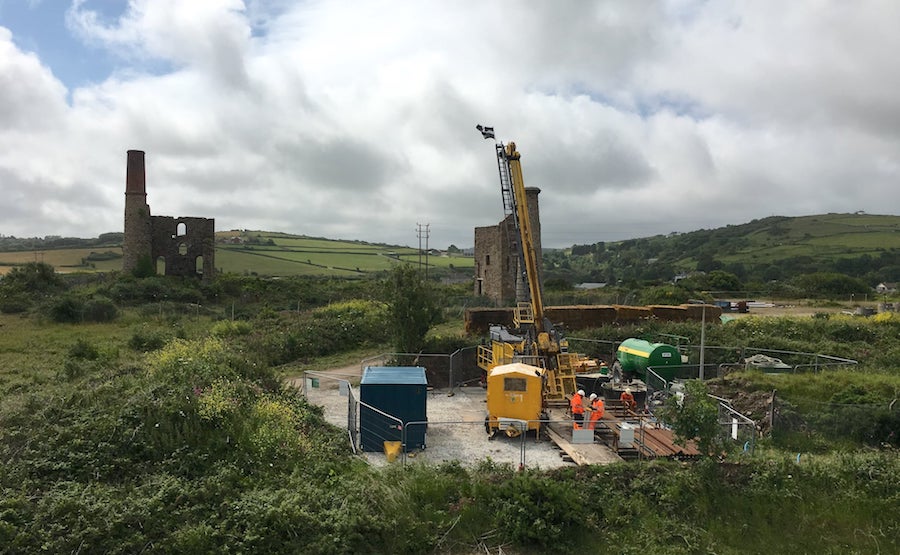Cornish Metals updates South Crofty tin resources, targets feasibility by end of 2024

Cornish Metals (TSXV, AIM: CUSN), owner and operator of the South Crofty tin project in Cornwall, UK, has put out an updated mineral resource estimate (MRE) after the last in 2021, placing it on track towards a feasibility study and production decision as soon as next year.
The focus of this new resource, says Cornish, is the Lower Mine area, tin-only section of the project, which has been subject to review, including further digitization and modelling of historical data. The the Upper Mine polymetallic area has also been reported using current metal prices.
Assay results from recent drilling of the existing major structures at depth (No. 4, No. 8, Roskear and North Pool Zone) as part of a metallurgical testwork program have also been incorporated into the estimate.
Overall, the new MRE showed a 39% increase in tonnes and 31.6% increase in contained tin in the indicated category, and a 35.6% increase in tonnes and 15.5% increase in contained tin in the inferred category.
The majority of new resources are contained within the central part of the mine in No. 1, No. 2, No. 3, Main, Intermediate, North and Great Lodes following digitization and modelling of historical data. The major lode structures that comprise the resource remain open along strike and at depth.
“This is another positive development for South Crofty as we advance the project through to delivery of a feasibility study (FS) by the end of 2024 and continue to demonstrate the potential to increase the project’s mineral resource and mine life,” Cornish Metals CEO Richard Williams said in a news release.
The South Crofty project is host to a historical, high-grade, underground tin mine that started production in the 16th century, and continued operating until 1998. Between that period, about 450,000 tonnes of tin from the Central mining district have been mined.
Since acquiring the project in 2016, the company said it has demonstrated the economic viability of re-opening the operation and additional mineral rights containing past-producing mines. The property currently covers 1,490 hectares and 26 former producing mines.
The project is fully permitted, having obtained its underground mining licence valid until 2071, planning permission to construct a new process plant and a permit from the environment agency to dewater the mine.
{{ commodity.name }}
{{ post.title }}
{{ post.date }}




Comments